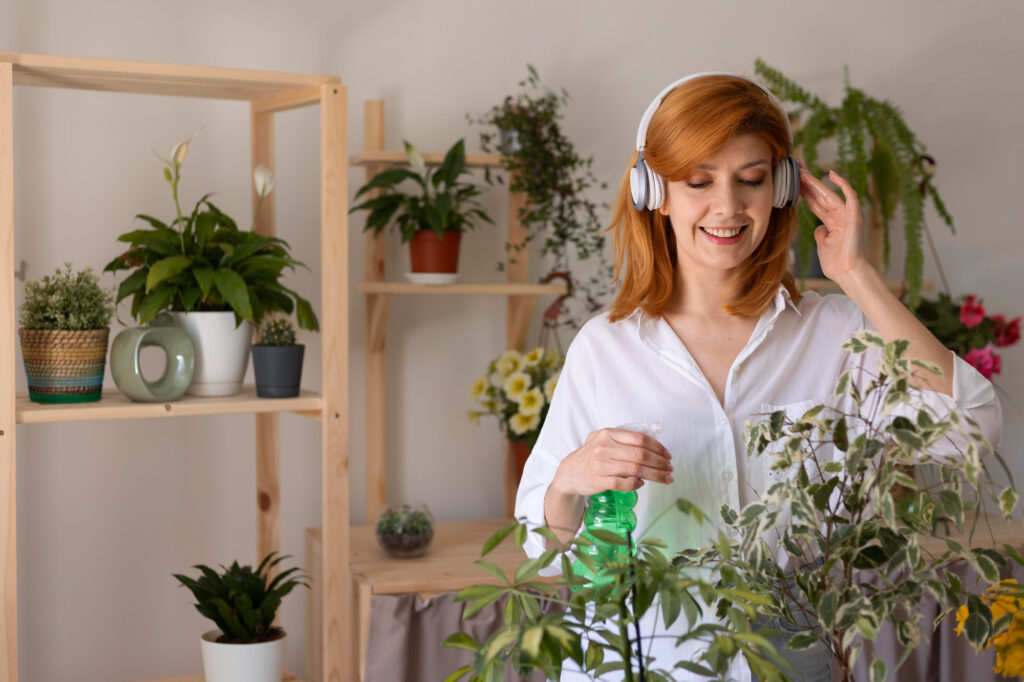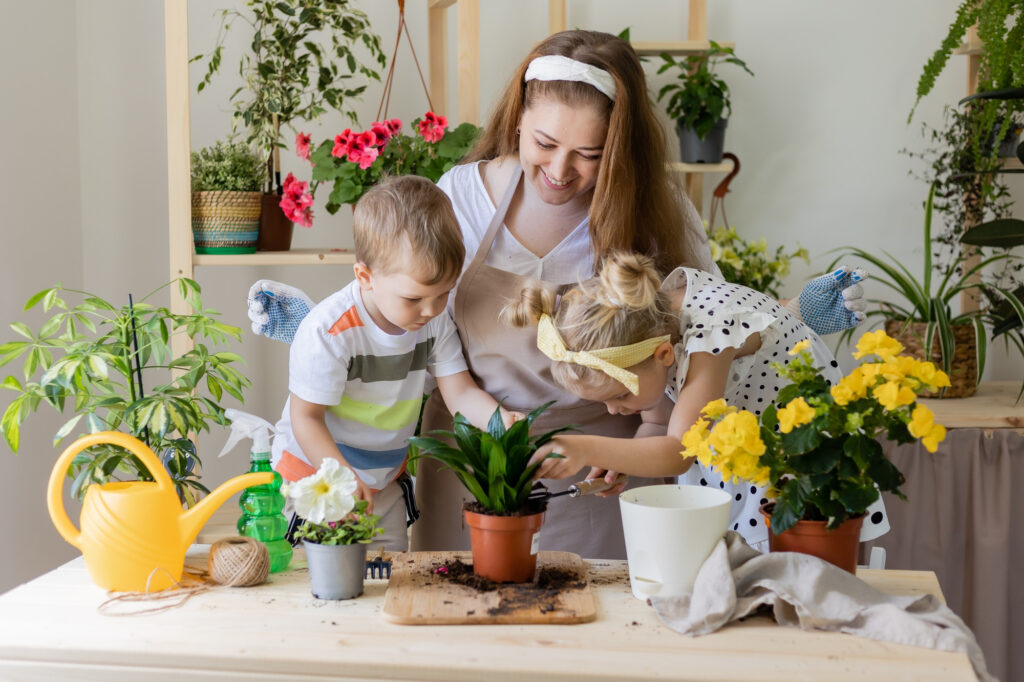Gardening is not just a means to adorn our homes with greenery or to provide fresh produce; it is a deeply rooted practice that can significantly impact our mental health and serve as a mindful activity. The act of nurturing plants, from sowing seeds to watching them flourish, is a journey that mirrors the growth we seek within ourselves.

The connection between gardening and mental health has been the subject of various studies. Engaging with the soil, plants, and the rhythms of nature can lead to reductions in depression and anxiety symptoms, stress, mood disturbances, and even body mass index (BMI). The immediate and long-term effects of gardening have been shown to provide instantaneous reductions in depression and anxiety symptoms, while daily gardening is associated with reduced stress and increased life satisfaction.
Also, Studies have shown that simply digging in the soil can increase serotonin levels, a feel-good neurotransmitter that helps combat stress and anxiety. The repetitive tasks involved in gardening, like weeding or planting, can be surprisingly meditative. By focusing on the present moment – the feeling of the soil, the vibrant colors of your flowers – you can quiet a busy mind and achieve a sense of mindfulness
Watching your plants thrive under your care is incredibly rewarding. Witnessing the fruits (or veggies!) of your labor fosters a sense of accomplishment and boosts self-esteem.
Gardening as a Mindfulness Practice
Mindfulness, the practice of being fully present and engaged at the moment, is naturally woven into the fabric of gardening. It invites us to slow down, observe the intricate details of plant life, and immerse ourselves in the sensory experiences of the garden. Mindful gardening involves being present at the moment, observing the natural world around you, and connecting with the earth, which can help release stress and anxiety, promoting a sense of calm

Research on the Benefits of Gardening
Research has consistently suggested that gardening provides numerous physical and mental health benefits. It can boost movement, improve diet, fight illness, smooth mood, sharpen brain function, and strengthen social bonds. A study from 2023 involving 300 participants indicated that those who gardened for one year consumed more fiber, experienced less stress and anxiety, and engaged in more moderate-to-vigorous exercise than those who did not garden.
So, how can you transform your gardening into a mindfulness practice? Here are some simple tips:
- Engage Your Senses: Slow down and appreciate the sensory experience of gardening. Feel the texture of the soil, smell the fragrant herbs, and listen to the gentle hum of life around you.
- Breathe Deeply: As you tend to your plants, take slow, conscious breaths. With each exhale, release any worries or anxieties that may be clinging to you.
Embrace the Journey: Gardening is a process, not a destination. Don’t be discouraged by setbacks. View them as learning experiences, just like the challenges we face in life.

The beauty of mindful gardening is that it’s accessible to everyone. Even a small balcony or windowsill can be your personal green sanctuary. Start small, plant some herbs or colorful flowers, and watch your mood blossom alongside your plants. Remember, it’s not about having a perfectly manicured garden, but about connecting with nature and finding moments of peace amidst the chaos. So, grab your gloves, embrace the present moment, and let your garden be your path to inner zen.






